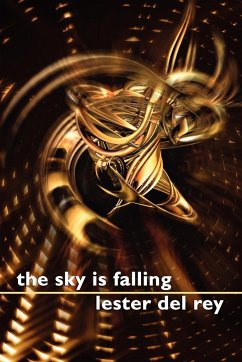In this science fiction novel, Earth faces an apocalyptic event as a vast water mass from space threatens to engulf the planet, causing a second Great Flood. A daring scientist builds an ark-like refuge to save humanity from total destruction. With its thrilling narrative and imaginative vision of disaster, the story combines adventure, speculative science, and survival against impossible odds. Garrett Putnam Serviss (1851-1929) was an astronomer, popularize of astronomy, and early science fiction writer. 1911's The Second Deluge is his fifth science fiction novel.
Bitte wählen Sie Ihr Anliegen aus.
Rechnungen
Retourenschein anfordern
Bestellstatus
Storno








